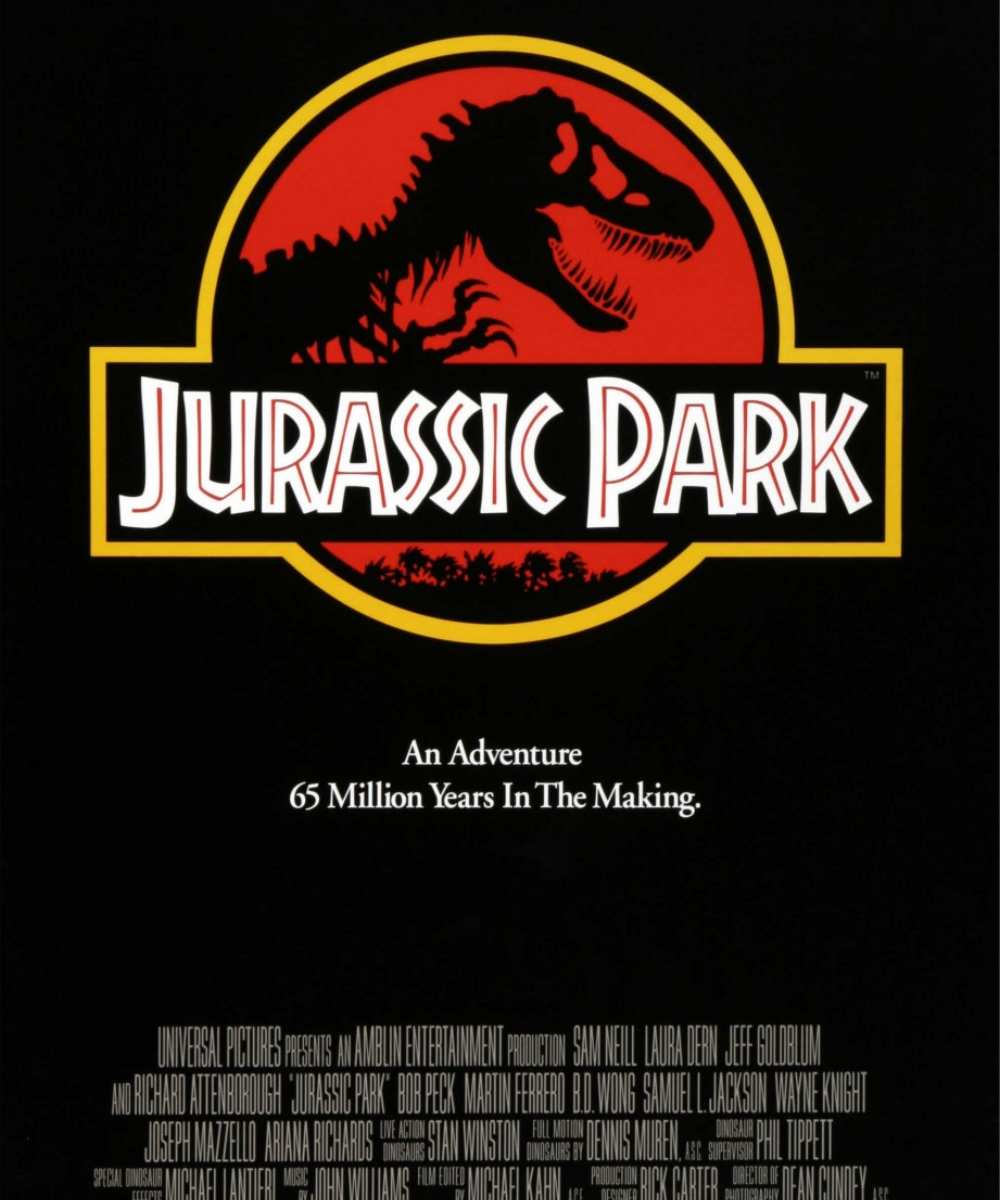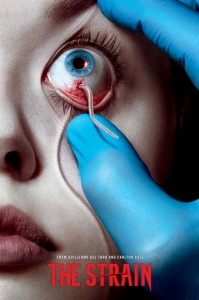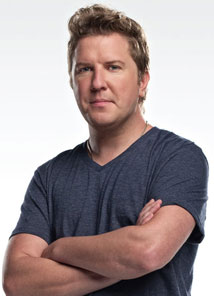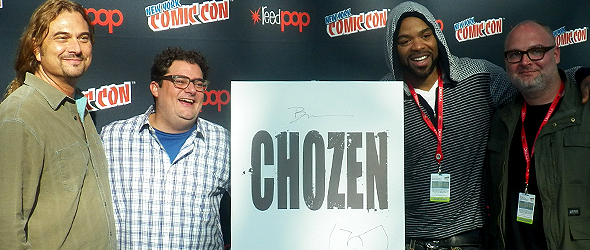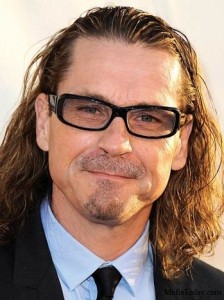“The Strain” is a novel, which spawned a trilogy from Guillermo del Toro and Chuck Hogan, which also are co-creators, executive producers and writers for the new limited series on FX. Emmy® Award winning Writer and Producer Carlton Cuse (“Lost”) is serving as Executive Producer/Showrunner and Writer.
“The Strain” is a high concept thriller that tells the story of “Dr. Ephraim Goodweather,” the head of the Center for Disease Control Canary Team in New York City. He and his team are called upon to investigate a mysterious viral outbreak with hallmarks of an ancient and evil strain of vampirism. As the strain spreads, Eph, his team, and an assembly of everyday New Yorkers, wage war for the fate of humanity itself.
Media Mikes had a chance to chat with The Strain’s Co-Creator / Executive Producer / Director Guillermo del Toro and Show Runner / Executive Producer / Writer Carlton Cuse about the new series and what we can expect.
Carlton, tell us how you first got involved in this project?
Carlton Cuse: I had read the first Strain novel as a fan of both Guillermo’s work, and also independently I knew Chuck Hogan, and so I was very curious to see what this collaboration would look like. And I was just intrigued by the subject matter. I had read the first novel when it came out in 2009 and really enjoyed it, and then basically about two years ago my agent called me up and said that there was some interest in doing The Strain as a television series and would I be interested in it. I went and met with Guillermo and I had a really good meeting, and I basically decided to get involved, for two reasons. One, because I had a lot of respect for Guillermo as a filmmaker and I thought, particularly in a monster show like this, that he’s one of the most imaginative guys out there in terms of creating creatures and worlds. And I also thought that embedded in the book was this fantastic opportunity to upend the vampire genre, as the vampire genre has sort of been overrun by romance, and that we had had our fill of vampires that we’re feeling sorry for because they had romantic problems. And it was time to go back to the conception of vampires as really scary, dangerous creatures, and in so doing that there was a way to kind of make a genre show that would be different than anything that was out there on the TV landscape.
Being a fan of the book series; what is your plan to incorporate the sequels into the series?
CC: Book one is season one, yes. We basically follow the narrative of the first book in the first season. The plan is that the show will run somewhere between three and five seasons, and as we work out the mythology and the storytelling for season two we’ll have a better idea of exactly how long our journey is going to be. But it won’t be more than five seasons, we’re definitely writing to an endpoint, and we’re following the path as established in Guillermo and Chuck’s novels. But obviously there’s a lot that’s also going to be added. The television show is its own experience, and there are new characters and new situations, different dramatic developments, so the show and the book can each be separately enjoyed. I think that the goal is not to literally translate the book into a television show. You want to take the book as a source of inspiration and then make the best possible television show that you can make. And I think Guillermo, Chuck, myself, all of us involved have basically said, okay, here’s the book, now how do we take the best stuff in here and then use that as elements and then make the best TV show we can. But we view the TV show as its own creation.
Scott Kirkland/PictureGroup
Guillermo del Toro: It was very clear from the start that we had the three books to plunder, but we also had the chance of inventing. We talked about milestones, that we want the milestones and the characters that are in the book to be hit, but with that it became very malleable. Carlton decided, I think very wisely in retrospect, it made perfect sense as a game plan to, for example, leave the origins of The Master, which we opened book one with for a second season, if we go that way, and, for example, bringing a set piece from book two to bookend the story of one character on season one. So, it’s a very elastic relationship that the series has with the book, but by that same token it’s very respectful and mindful of the things that will not alienate someone that likes the books. It should feel as seamless. And I think the decisions we have to understand when Carlton is guiding us through this new medium for the story, to trust and know that his decisions are guided by huge experience and a prestigious career.
Guillermo, how was the transition from feature films to cable television?
GDT: The transition came from both Chuck and I, it was very smooth in many ways because we had the chance to adapt the novels to comic book form with Dark Horse. And coming in we really sought Carlton’s guidance into this new form. I think there never has been an occasion in which our dialogue has seen anyone read the books and say, “This is not the way it’s in the books.” So that much was very satisfactory. For me as a producer and director, it was about having some of the quirks that come from a feature film. I asked FX to give us a long pre-production period so I could really plan out the makeup effects, the creature effects, the visual effects, all of which I have big experience with, in order to try to bring to the pilot a big scope feel to the series doing sophisticated effects and some set pieces, while staying on a fiscally responsible budget and managing. And from a director’s point of view it was the same on the pilot. I didn’t want to go back and say, can I get one day more? Can I do many extra hours? I wanted to fit in the sandbox what I was hoping would feel like a big pilot episode for a big series. And that pre-planning was crucial, but also adjusting the way I staged, the way I approach coverage, or storytelling, and yet not sacrificing anything. It was both some fiscal constraints, but creative absolute freedom, which was a huge thrill for me to get a phone call from John Landgraf before starting the series, saying to me, “We encourage creator content, we love Carlton, we love you, and we want you guys to do the most idiosyncratic, best version of the series that you can.”
Tonya Wise/PictureGroup
Can you tell us about the decision to do this as a limited series?
CC: I think that we’re moving into this new phase of television where I think audiences are really embracing stories with a beginning, middle, and end. And if you look at the success this season, for instance, of True Detective and Fargo, as well as the kind of incredible response that the end of Breaking Bad got, I think that you have to recognize that the audience wants to see stories that come to a conclusion. They want the full and rounded experience. And television has been sort of a first act and sort of an endless second act, and I think that the best television now is giving you a three act experience. And I think that that’s what we want to do with our show.
GDT: I agree with Carlton. I think one of the things that we made essential when we pitched the series everywhere, and certainly at FX, is we came in and we said we are not going to be extending beyond the—we presented two arcs, one that can fulfill three or four seasons, and hopefully the second or third book are complex enough that they can generate a fifth one. But we literally said it needs to end when it needs to end, and that was a central part of finding a home for the series.
Can you talk about the creature development for this show?
GDT: Yes. I’ve been obsessed by vampires for a long, long time, since I was a very young kid, and a very strange kid. I read about vampire mythology worldwide and I familiarized myself with the Japanese, Filipino, Malaysian, and Eastern European variations on the vampire, and many, many others. And I kept very detailed notes as a kid on where to go with the vampire myth in terms of brutality, social structure, biology, this and that, and some of those notes made it into my first feature, Cronos, some of them made it in Blade II, when I directed that, and most of them made it into The Strain. And designing them, we knew and we had it very clear that, for example, The Master needed to be hidden for at least half the season or more to not make him that accessible. I came up with the idea that this guy that has been alive for centuries and essentially is an apex of the Dark Ages in the middle of a world of imminent modernity. You have people with cell phones, jet airplanes, iPads, texting, Internet, all of that, and in the middle of it there is a 9 foot tall, hand carved coffin with a creature that has been alive for centuries. And it’s ancient, and that’s what makes it powerful, that it doesn’t care about any of the modern accoutrements of mankind that gives mankind such a false sense of security. And The Master needed to look that ancient, so we decided that he was going to become his wardrobe and that eventually when he reveals himself you have a second layer. So we designed the wardrobe, the cape and the multiple layers of clothes that are falling apart, because he has an accumulation of clothes over the 1800s, 1900s, 21st century, he’s just accumulating rags, and he needed to look like a lump, like a bunch of rags thrown on the floor, then come alive, and out of all these rags comes out this incredibly glistening and viscerally biological appendage that then drains the first victim. And that’s the way we started guiding the process of designing The Master. And the more we go into the season, the more you see of him and the more you discover layer after layer of that creature design.
What about FX made you decide the network was the right place for The Strain?
GDT: We had a fantastic first meeting, if I may say so. We had an incredible meeting in which the very head of the network and everybody in that room knew patently well and intimately the three books. And yet they were excited by Carlton, they were excited by the possibility of not just doing the books but where would Carlton take it as a show runner, they were excited about, okay, that’s the universe, but we see many more possibilities than that. That made it very unique in our eyes. And they celebrated the aspects of the series that were edgier, or less of a kind that we have seen before. The other thing for me that was unique is I’m a follower of the brand, I’m a big FX fan, and they give you time to find your footing. They give you time to establish, especially in a genre like this, you know you cannot just do everything at once, reinvent everything at once. You either reinvent the characters in a genre story, or you reinvent the generic traits with characters that you’re able to place in the normal canon of the genre and then little by little evolve those characters, and that needs time. And FX has been known to be supportive of series that find their footing and creatively allow them to explore anything from characters you’ve seen before that then transform into things that are new, or concepts that are very new that go to daring places. So, it made it a unique place for the show.
CC: I would just add to everything that Guillermo said, that again we were presenting them with a very specific business model about how we wanted to approach the show, that we wanted to have the show last between three and five seasons, that we needed them to spend a bunch of money up front to do the R&D and the work that was necessary to do the world building for our show, and they would have to spend money up front on writing a bunch of scripts. And they jumped in wholeheartedly and they embraced the way in which we wanted to produce the show, as well as our creative vision, and we felt incredible confidence coming out of our meetings with them that they were the exact right partners for us.
